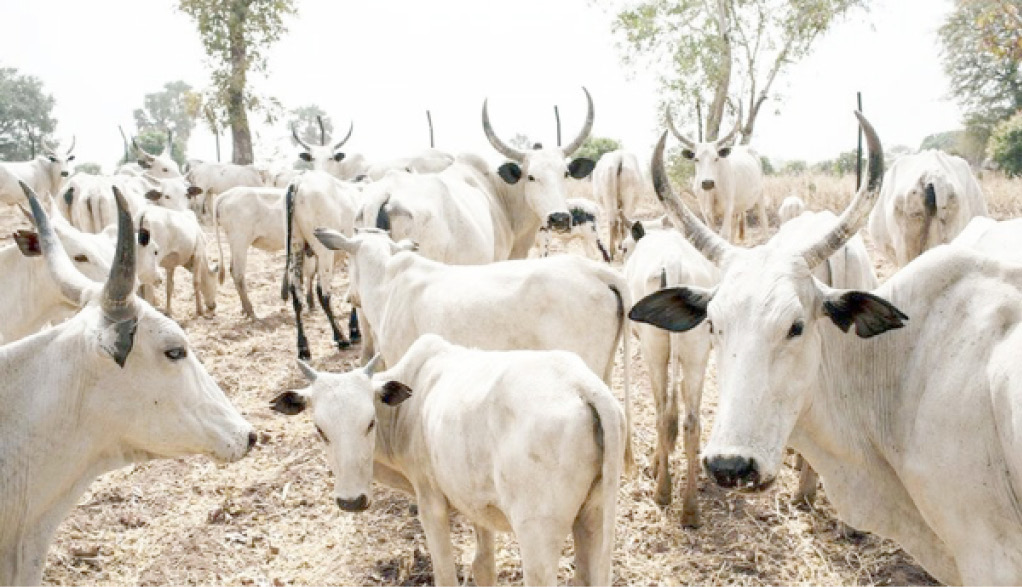Three weeks ago, President Bola Ahmed Tinubu created the Ministry of Livestock Development following recommendations of the National Livestock Reforms Committee on September 14, 2023, urging him to create a “Ministry of Livestock Resources” to end years of bloodshed between crop farmers and cattle herders.
The essence of the new ministry, in the word of the president, was to “open up new opportunities that benefit farmers, herders, processors and distributors in the livestock farming value chain.”
The committee, chaired by the president and co-chaired by a former chairman of the Independent National Electoral Commission (INEC), Professor Attahiru Jega, made 21 recommendations to the federal government as a coordinated and comprehensive response to the carnage and economic neglect that characterise the sector.
Nigerian livestock sector: Numbers speak potentials
According to Nigeria’s National Agricultural Sample Census (NASC) report, 2022, there are approximately 40.2 million agricultural households, with 48 per cent reporting ownership of livestock.
- Why FG’s palliatives will not address food inflation – Agriculture experts
- Prof Salisu Shehu’s pointblank truth from the pulpit
About 16 per cent reared 58 million cattle and 41.2 per cent raised 124 million goats. However, only five per cent of people engaged in fishing compared to 42.5 per cent of poultry, mostly chickens.
With these figures, Nigeria is among the top African countries with the largest animal population, although it lags behind Ethiopia, Tanzania and Kenya in terms of milk production.
Experts say problems with livestock growth, health, husbandry, the welfare of individuals engaged in livestock production, marketing, and integrating innovation into the development and management of the livestock economy should be of special importance to the new ministry.
Dr Isa Musa, a specialist in livestock, outlined the ways the recently established Ministry of Livestock Development could support the growth of Nigeria’s livestock subsector. These include creating and enforcing regulations and standards that guarantee the security and calibre of livestock products, as well as designing and executing policies that encourage the subsector’s expansion; educate farmers and herders on best practices and ways to increase productivity by offering extension services.
The expert also stressed the significance of research and development projects to improve livestock breeds, feed, and disease control, improve the abilities of farmers, herders, and other players in the livestock value chain, as well as establish feedlots, abattoirs, and markets to help the livestock subsector.
Other areas Dr Musa listed are; encouraging the processing and value addition of livestock products to increase their shelf life and marketability, developing and implementing effective disease control measures to reduce diseases in livestock.
“By implementing these strategies, the new Ministry of Livestock Development can help to transform the livestock subsector in Nigeria and make it more productive, efficient and sustainable,” he said.
Dr Celestine Ayok, a dairy farmer and owner of Spring Dairies in Kaduna, in an interview with the Weekend Trust, said the “multi-billion naira revenue generating activities” could transform the economy of Nigeria.
The farmer said that all over livestock markets in Nigeria, the volume of businesses that take place is huge, noting that creating the ministry would further strengthen the livestock economy.
Ayok said most economies in Africa that developed livestock industries had dedicated ministries for livestock and fisheries, which positioned them to contribute significantly to their economies.
A seasoned livestock expert, Professor Abdulkadir U. Junaidu of the Uthman Dan Fodio University, Sokoto, also said the new ministry would enhance livestock industry contribution to the country’s economy.
Junaidu, a former commissioner in charge of livestock in Sokoto State, wants the new ministry to look into the effects of insecurity on livestock producers in order to help the country advance and gain from the subsector.
“If you look at development in livestock, especially with the level of insecurity, many of our animals have been rustled, many killed; and we don’t even know where some of them are. So I am sure the creation of this ministry will go a long way in stabilising the livestock industry in Nigeria. We will know where we are and where we are going, especially when we know where we are coming from and the fact that the livestock sector has suffered in the hands of insecurity,” he said.
Dairy: Drawing lessons from India, Kenya
Through a comprehensive implementation of the recently published dairy master plan, Nigeria might take a cue from other countries that have designated ministries for livestock.
India is one of the top producers of milk in the world, with three ministers overseeing the Ministry of Fisheries, Animal Husbandry and Dairying.
The ‘White Revolution’ in India in 1970 became the largest dairy development initiative in the world. The country that was lacking in dairy products became a world leader in milk production, thanks to “Operation Flood,” as it is commonly called.
Majority of the processed liquid milk sold from India is supplied by dairy cooperatives, and through their merger into 22 state cooperative milk marketing federations, 170 milk producers’ cooperative unions processed and marketed milk under brands that have come to represent excellence and affordability.
In Kenya, the dairy cattle herd is estimated at 5.02 million, producing about 5.2 billion litres of milk annually, according to the Kenyan Dairy Board.
Kenya developed a National Dairy Master Plan (DMP) in 1991/1992, which increased efficiency and productivity in the dairy industry.
Today, according to African Milk, “Kenya is the leading milk producer in East Africa. Dairy is the largest agricultural sub-sector in Kenya, in terms of income and employment creation, contributing four per cent to overall gross domestic product.”
N23trn feed sector holds massive job promises
The Minister of State for Agriculture and Food Security, Dr Aliyu Sabi Abdullahi, during a fodder/feed programme in Abuja recently, said there was so much hidden treasure in the feed and fodder industry the country ignored over the years.
“I would like you to take note of the estimated population of livestock in Nigeria. Based on our calculations, the livestock sector in Nigeria is worth approximately N33 trillion.
“Up to 70 per cent of that sector is actually feed and fodder, which means that by simple gesticulation, we are talking about a Nigerian feed and fodder industry worth N23 trillion.
“If you look at the employment opportunities inherent in this sector, honestly, it is not what you will ignore. I am happy that we have identified all the pathways; and clearly, from the output of what have been done, we now have a clear line of sight to how we are going to drive the feed and fodder sector to become that industrial and economic hub that everybody would want to come into.
“If you take a look at the livestock industry and the idea around feed and fodder, we are creating a Nigerian feed and fodder industry as a new economic hub for food and nutrition security,” the minister said.
Experts in the feed and fodder industry said expanding this sector would not only solve the unnecessary carnage and hatred that have long plagued herders and sedentary farmers but also generate income and economic prospects for the country.
Strengthen egg, meat industries
Before the current economic crisis, Nigeria had an estimated population of 83 million birds, mainly chickens. However, the feed crisis forced many poultry farmers across the country to shut down operations.
A robust blueprint for the poultry industry will trigger a lot of economic activities and boost consumption of eggs and meat and revamp the industry, which has seen sustained attacks since the COVID-19 pandemic.
Poultry farmers said the government should organise the feed subsector that takes about 70 per cent cost of production to meet demand on a sustainable basis, which can boost smallholders’ income even in the rural areas.
End over N97bn quarterly milk import
Data from the Nigeria Customs Service shows that as at the end of the third quarter of 2023, the value of milk imports into Nigeria from 10 countries was approximately N97 billion: Germany N24.4 billion, New Zealand N21.3 billion, Ireland N20.2 billion, Malaysia N12.8 billion, France N9.5 billion, United Kingdom N5.2 billion, Uruguay N3.8 billion, Netherlands N2.5 billion, and other European countries, totaling approximately N97 billion.
These massive imports will decrease when new milk breeds of cows are developed.
Who should lead the ministry?
Experts like Dr Ayok want the ministry to be solely managed by professionals, not politicians.
“Honestly, it should be a professional that has a serious clout that can help the ministry get funds. There are lots of funding out there that would enhance livestock activities, but if they put a politician there, it will fail. I am being honest.
“This is a new ministry and it will be better if you put a technocrat. They shouldn’t start with politics in that place, if not, it would be dead-on-arrival,” he said.

 Join Daily Trust WhatsApp Community For Quick Access To News and Happenings Around You.
Join Daily Trust WhatsApp Community For Quick Access To News and Happenings Around You.


